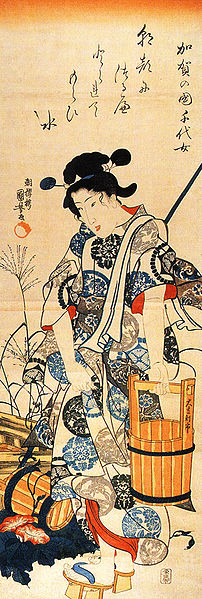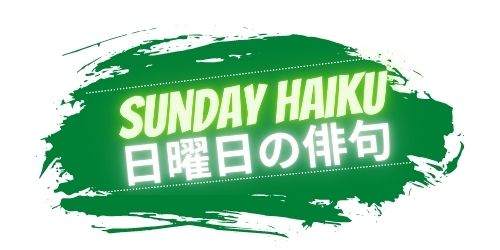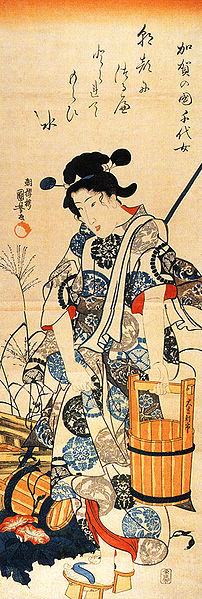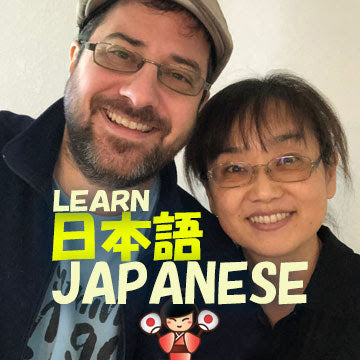Before we get to today's haiku, let's catch up on our new posts from the last week (all free except the last one):
- Beginning Japanese Phrases #76 ~ないで [BEGINNER]
- Nihongo no Tane #79 決まり文句 [INTERMEDIATE]
- Teruhashi-san from The Disastrous Life of Saiki K. おっふっ! Video [UPPER BEGINNER]
- And finally, for a limited time, get all 50 Makoto issues for only $2 each (or $1 each if you are a Makoto+ member--check your members area for the coupon).
Haiku lesson
Last week, the haiku was easy to learn since it really only had two words. Good haiku can be both deceptively simple and full of meaning. Makoto+ Shogun members, click here for last week's haiku.
This week, we will look at a famous poem by Japan's greatest female classical poet, Kaga no Chiyo (1703-1775).
Kaga no Chiyo (加賀 千代女) was a poet from the Edo period. She is regarded as one of the greatest poets of all time and widely considered an important creative voice for Japanese women to follow.
Today's poem is probably her most well known.
Let's get right to it.
Vocabulary:
- 朝顔 asagao - Morning Glory flower
- に ni - (taken) by (Morning Glory)
- つるべ tsurube - well bucket
- 取られて torarete - was taken [te form conjunctive of 取られる (to be taken)]
- もらい水 morai mizu - borrowed water
The Morning Glory is the seasonal word (季語 kigo) and represents autumn.
The poet wants water from the well but finds that during the night, the Morning Glory had entwined itself around the bucket. If she uses the bucket to get water, she will pull the vine from the plant. Not wanting to do that, she goes to ask for water from a neighbor (もらい水 morai mizu).
Ukiyo-e of the haiku
One of the last great masters of ukiyo-e, Utagawa Kuniyoshi, did a woodcut of today's poem somewhere around 1840. To him, the poem was a century old and already a part of Japanese culture.
If you are a Makoto+ Shogun or lifetime member, click here to see this lesson with audio. [Sorry, the Samurai level doesn't have access to past haiku lessons.]
Like this haiku lesson? Did you know we have almost a hundred other haiku lessons on Makoto+ now? All have vocabulary and grammar breakdowns with sound and cultural notes. Shogun and lifetime members have unlimited access to all lessons.






